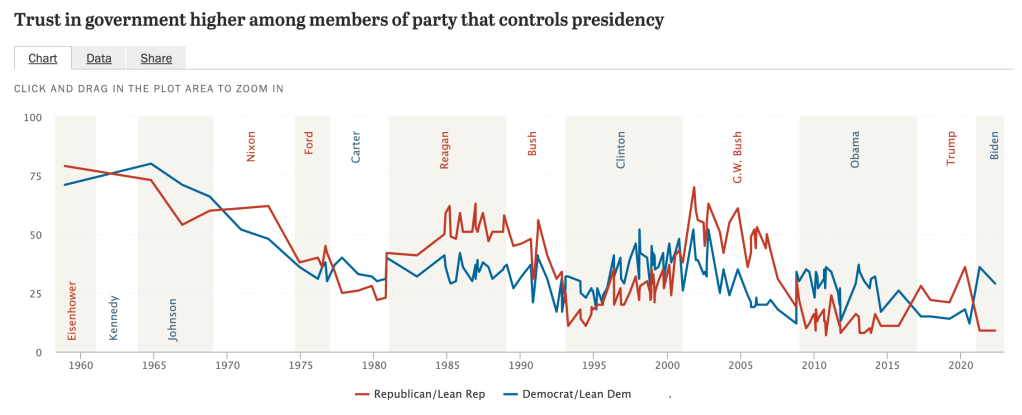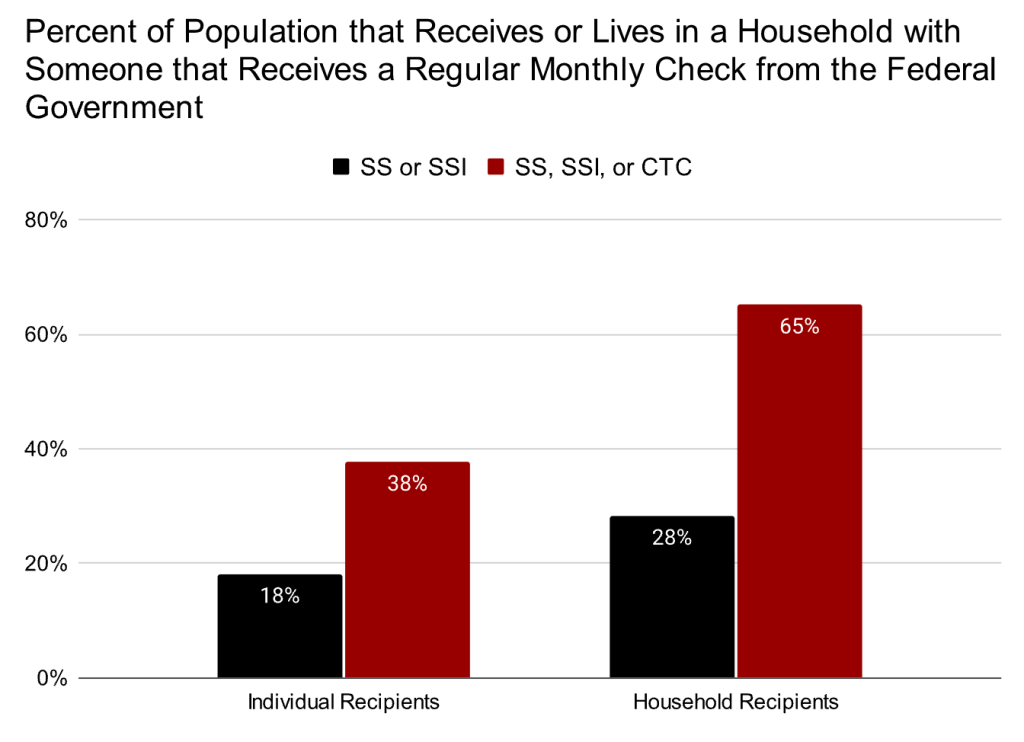Seeking Approval?
Government, even in its best state, is but a necessary evil; in its worst state, an intolerable one.--Thomas Paine

“That government is best which governs least.” – Henry David Thoreau.
According to a recent Pew Poll, public trust in government remains low, as it has for much of the 21st century. Only two-in-ten Americans say they trust the government in Washington to do what is right “just about always” (2%) or “most of the time” (19%). Trust in the government had declined somewhat since last year when 24% said they could trust the government at least most of the time.

The data clearly points to a disconnect between those who govern and the governed. If you wonder why those in political power were panicked by the January 6, 2021 ruckus. Our glorious leaders carry an omnipresent and rightful fear of “we the people.”
Pew’s National Election Study began asking about trust in government in 1958. Back then, three-quarters of Americans trusted the federal government to do the right thing almost always or most of the time. Trust in government began eroding during the 1960s, amid the escalation of the Vietnam War. The trust decline continued in the 1970s with the Watergate scandal and worsening economic struggles.
Confidence in government recovered in the mid-1980s under President Ronald Reagan before falling again in the mid-1990s. As the economy grew in the late 1990s, so did government confidence. Public trust reached a three-decade high shortly after the 9/11 terrorist attacks but declined quickly after that. Since 2007, the percentage of Americans saying they can trust the government has not surpassed 30%.
Today, 29% of Democrats and Democratic-leaning independents say they trust the government compared with 9% of Republicans and Republican-leaners. Democrats report slightly less trust in the federal government today than a year ago; there has been no change in the views of Republicans. (See graph below)

Throughout Donald Trump’s tenure as president, more Republicans than Democrats reported trusting the government. Those options flipped upon Joe Biden’s election. Since the 1970s, trust in government has been consistently higher among members of the party that controls the White House. Republicans have often been more reactive than Democrats to changes in political leadership. Republicans express much lower levels of trust during Democratic presidencies. Democrats’ attitudes have tended to be somewhat more consistent, regardless of which party controls the White House. For the first time, the GOP and Democratic shifts in attitudes between the end of the Trump presidency and the early Biden administration were roughly the same magnitudes.
Looking at race and ethnicity, Asian (37% trust the government “most of the time” or “just about always”), Hispanic (29%), and Black (24%) adults all express higher levels of trust in government than do White adults (16%). Black Americans’ trust in government is lower than it was a year ago but remains higher than it was late in the Trump administration. Views among White, Hispanic, and Asian adults have seen more minor changes since 2021.

As was the case throughout much of the Obama and Clinton administrations, Black and Hispanic adults now express more trust in the government to do the right thing than White adults. Throughout much of the Republican presidencies of Ronald Reagan, George W. Bush, and Trump, White Americans were substantially more likely than Black Americans to express trust in the federal government.
According to Pew Research, no matter how one slices the data, Americans don’t trust their government to lead. A sad commentary.
How does a very unpopular government stay in power? Let me suggest sending checks to families. The federal government now pays monthly checks to about 88 percent of children in America through the Child Tax Credit (CTC) program. Under the American Rescue Plan of 2021, advance payments of up to half the 2021 Child Tax Credit were sent to eligible taxpayers.
Before the new CTC, only 28 percent of the population lived in a household where the federal government paid monthly checks primarily to elderly and disabled people through the Social Security (SS) and Supplemental Security Income (SSI) programs. Now, it is 65 percent.

Who wants to challenge a government sending them a check? Men with foresight saw the enviability of corruptible democracies.
“Today’s democracies have become “welfare states” in which people increasingly look to the government for relief, pensions, price supports, and other direct benefits. In such a state, the government employs a large and increasing number of people directly. It sends its checks or other bonanzas to a still larger number. This vastly enlarged government has the power to keep itself in office. The essence of democracy is the power to change the rulers. With the “welfare state,” we have lost some of that power, how much we do not yet know. With the tighter grip of the rulers on power appear to have come greater corruption, and lower public morals. How much is cause and effect we do not know? But here is clearly revealed another weakness of present-day democracies.”
The quote above came from W. Randolph Burgess’ piece Money as an Instrument of Democracy, written in 1952. A sober warning about a corruptible democracy in which 51% of the population could take the property and earnings of the other 49%.
The paradox of low US government trust and approval ratings against the backdrop of a bought and paid-for “hearts and minds” campaign makes perfect sense. This vastly enlarged state has the power to keep itself in office.
Until next time. Stay safe.

